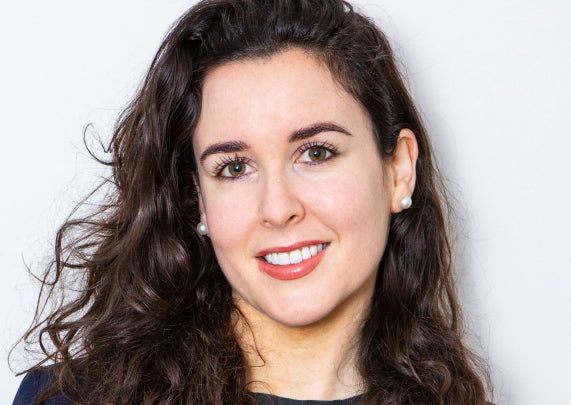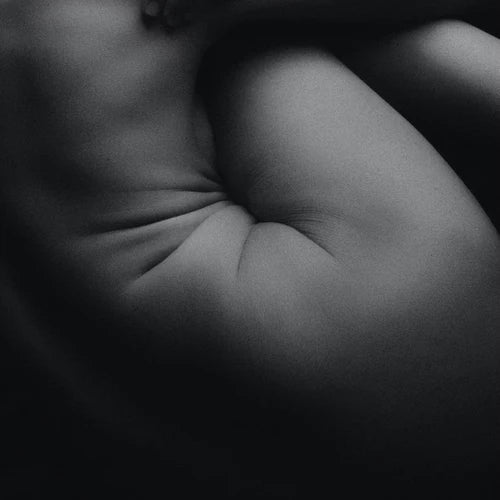In-house specialist pelvic health and rehabilitation physiotherapist, co-founder of LETO
Marta is one of the incredible women in our Luna Daily Collective who inspires us with her passion and knowledge to help improve women's overall wellbeing through prioritising the pelvic floor.
Marta, tell us a little bit about you… how did you get started in pelvic floor health?
I was working as a musculoskeletal physiotherapist, often treating pre and post-natal women presenting with a diastasis (when the stomach muscles ‘unknit’ to accommodate a growing baby). Some of my patients would tell me they were also feeling a heaviness in the vagina or around the groin. I could treat them to an extent externally by supporting the back and the core however I knew I had maxed out my skillset and needed to learn how to treat these women from the inside out.
Symptoms of pelvic floor dysfunction can have a devastating effect on a woman’s physical and emotional wellbeing, and I wanted to be able to do more. In 2015 I started working with a specialist pelvic floor physiotherapist who specialised in pelvic pain. I then took the slightly mad step of doing over 30 pelvic health courses in 18 months! But I wanted to learn thoroughly and learn fast, particularly from the industry leaders in Australia, a country which leads the way in pelvic health research and healthcare, and in the US who are ahead of the game in terms of pelvic pain treatment.
What are the most common reasons women come and see you?
The most common motivations for women to see me, are sexual dysfunction, for example when sex is painful and the symptoms associated with postpartum recovery such as incontinence, pelvic floor prolapse and diastasis recti (tummy gap) and C-section recovery. There are many reasons and benefits to see a pelvic floor specialist for women of all ages and stages.
What can women do to help prevent pelvic floor issues in their daily lives?
Thank you for asking this question; there is so much you can do to prevent pelvic floor issues! I’ll start with three quick tips:
- You need to drink the amount of water that means you empty your bladder completely five to six times a day. On average you will need 1.5 to 2L per day, the best way to know if you are hydrated is to check the colour of your urine - it should be light straw-coloured and no darker. If you’re going to the bathroom ‘just in case’ or unnecessarily this can lead to an overactive bladder/
- Constipation puts unnecessary pressure on the back wall of the pelvic floor and weakens it. It is common for women suffer from constipation due to a diverse range of reasons. To help with this, I always encourage women to incorporate more fibre into their diet and to keep a little stool by their toilet to elevate your feet while emptying your bowels.
- See a pelvic health physio irrespective of whether you have symptoms! There is so much we can do for your pelvic floor health that links to your overall holistic health. For example, I’m beginning to see an increase in the number of women who’ve developed something called a ‘hypertonic’ floor which means they struggle to relax their pelvic floor muscles and are experiencing difficulties with intercourse and bladder function. This is particularly important for women who are stressed or super-active and enjoy intense exercise. Learning to let go or ‘down train’ is just as important as learning to squeeze, and a pelvic health physiotherapist like me can teach you how to do this and prescribe the correct exercises for you.
What is the biggest myth about our pelvic floor?
The biggest myth about the pelvic floor is that it only becomes significant after you have had a baby. Your pelvic floor holds the weight of your organs for your entire life, so it needs looking after, whether you have a baby or not!
In your career journey as a pelvic floor specialist, who is one woman who has inspired you or made a memorable impact and why?
Definitely Taryn Hallam, a super-cool pelvic health specialist from Australia. She has dedicated so much time and effort to pelvic health research, and has empowered women like me across the world to deliver the best care possible to our patients.
Lastly, what does being a woman mean to you?
I think being a woman is knowing and accepting our vulnerability but also embracing how powerful we are as individuals and, more importantly, when we ’re together support each other.
Marta Kinsella is a Specialist Pelvic Health & Rehabilitation Physiotherapist and co-founder of LETO and part of the Luna Daily Collective
You can find more information about LETO here: https://beyond-health.co.uk/services/pelvic-health/




